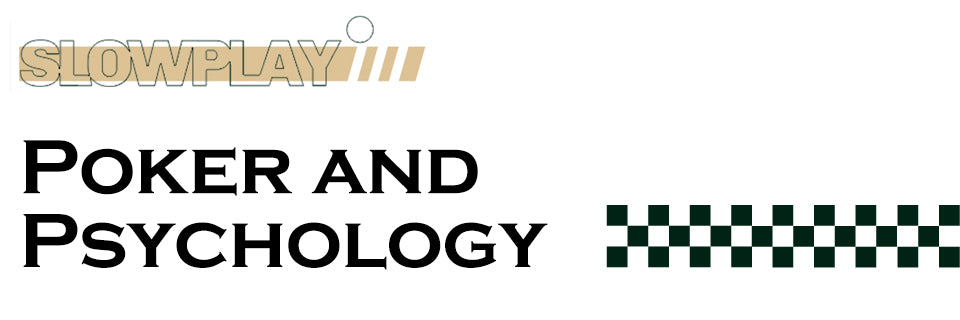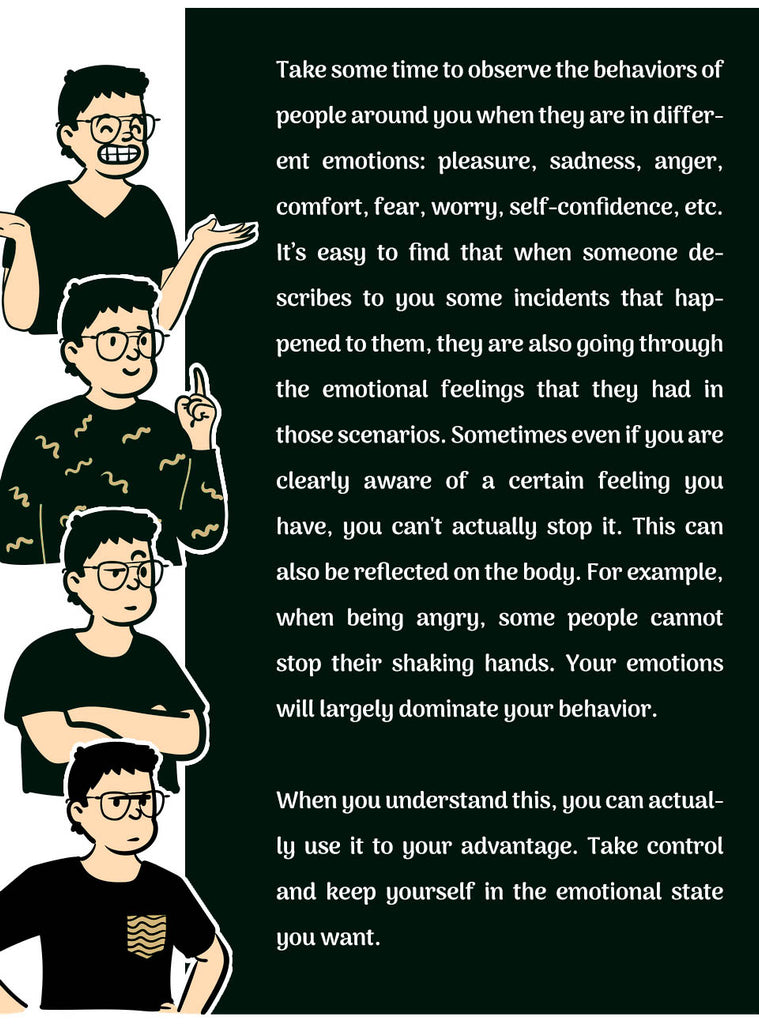When people talk about poker, they tend to believe that psychology dominates the game while cards are comparatively not as influential.
This statement has its scientific basis. What we call psychology only refers to the emotional state and psychological preparation of a player. In the past, people underestimated how the mind could influence the decision-making process. Nowadays, the psychological aspect has been recognized as an essential role in influencing the result of competitive games, such as poker.
We learn how to read people and spot their poker tells. To refresh your memory, you can click on the link to our previous post: Learn to Read Players in Poker. But in order to become a winner long-term, you need to understand some psychological concepts. Level up your poker strategy by using these tips, which might also be helpful for your daily life.


Whether you are a beginner or an experienced player, poker games can always be stressful. To some extent, this emotion is a good thing as it makes you stay focused and in a fighting mode. But be cautious and do not let the feeling turn into fear. When your emotion has too much negative impact on you, you will make bad decisions which will result in losing.
An even worse situation might happen that when you start to lose, you may experience stronger and stronger negative mood and feel greater pressure that could not possibly win you the game. You simply put yourself in the swirl of emotions.
This is why you have to learn how to control and strengthen your mind. Try positive visualization:

Ideally, you want to find a quiet and comfortable place. Close your eyes and rest your mind. Imagine yourself arriving at the venue and sitting at the table.
Try to picture and feel the atmosphere of the surroundings and the game. Think of yourself as confident and ready to take over the game. Your every move is elegant and charming. Feel the joy and satisfaction it brings to you. Tell yourself loud and proud: this is what is going to happen.
For beginners and online players:
What if you have never been to a casino or poker venue? It’s alright. You can go to the poker clubs near you or watch the videos of some large-scale competitions to get the gist of it.

For experienced players:
You have the advantage of playing some or many of the poker games no matter it is with your friends or at the casino. These experiences can easily help you recall or imagine yourself in the game environment and various emotional feelings of your successful games.


You know that you won’t be able to handle complex situations well when you don’t have self-confidence. We know that it is especially hard to maintain it in a high-pressure environment, especially in poker tournaments. But don’t worry. There are some strategies and techniques that can help you confront your emotions. Anchoring is one of the many options. It not only helps you manage your stress, but also keeps you upbeat.
When we say anchoring, we’re referring to the process of associating external or internal triggers like a gesture, touch, or sound with your internal response at its peak in order for this anchored state to be recalled or re-activated by reapplying the trigger.
So, what does this have to do with stress management in poker tournaments? Very simple, by using this technique, you can send positive signals to your brain to improve self-perception or emotional state. The easiest way to achieve this is through touch. You don’t even need to rely on any props to do it.
There are a few steps that you can follow to apply this technique:
Step 1: Determine your anchoring trigger

It could be an action of bringing your feet together for a few seconds, a slight movement of your fingers, or a touch of an arm with the palm of your hand. In short, just find the one that feels more comfortable and natural to you.
Step 2: Build the association
Think about what kind of psychological cues or internal responses you need; use those triggers you have determined when you are under positive emotional state. Keep repeating the process and practice this application. After a period of time, your brain will gradually form the association between the gestures and the anchored emotion.
Step 3: Test it in real-life scenarios
Before you take this technique to your poker game, you need to at least try it out in your real life a couple times. For example, when you feel pressure or frustration in work and life, use your anchoring trigger which should remind you of positive feelings. When you become comfortable and familiar with this process, you may bring it to your game. This anchoring process needs to become more and more natural and unconscious.


To excel in a poker tournament, skill and luck are not enough; psychological and physical factors can also affect the performance of a player. Advanced players will have to keep optimistic and mentally stable even after a series of bad losses.

In the poker tournaments, when you find yourself in a situation where you have lost a few games in a row, you could try to do some role-playing. Act like a confident winning player. You are a brave and positive self in this very moment. Take a deep breath, look straight ahead, and smile. Even though you are actually tricking yourself, you could sense the change in emotions, and the impact of fear and loss on your behavior will be minimized.
Make good use of the 3 psychology tips we have covered here. Hopefully they will be helpful to your game. Go ahead and try it out. Enjoy and win big!
